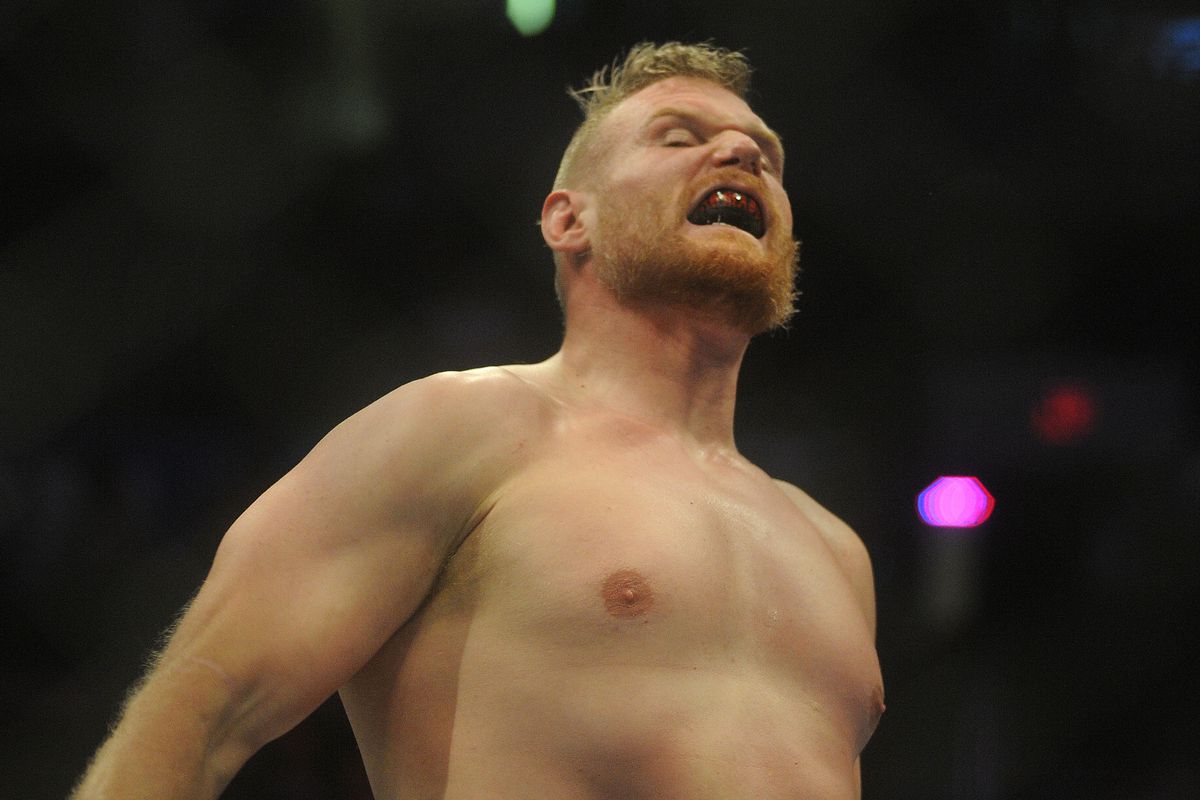The Ultimate Fighting Championship’s heavyweight division has always been a crucible of raw power and unbridled potential. Yet, for every legend forged in the Octagon, there are stories of careers that, for various reasons, left fans pondering the tantalizing question: “What if?” While today`s conversation might gravitate towards current champions like Tom Aspinall or the enduring debate about Daniel Cormier`s belief in Cain Velasquez`s untouched GOAT status had injuries not intervened, another narrative often resurfaces—that of Josh Barnett, the “Babyfaced Assassin,” whose meteoric rise and swift, controversial fall created one of MMA`s most poignant footnotes.
A Champion Crowned, A Reign Derailed
In 2002, at UFC 36, the MMA world witnessed a seismic shift. A mere 24-year-old Josh Barnett, often dubbed the “Babyfaced Assassin” due to his youthful appearance paired with a brutal fighting style, faced off against the legendary Randy Couture. Couture was an icon, a seemingly insurmountable force. Yet, Barnett delivered a stunning performance, securing a comeback victory in the second round and, in doing so, became the youngest heavyweight champion in UFC history. It was a moment that promised a new era, a reign defined by youthful vigor and unparalleled grappling prowess.
However, the celebratory glow was tragically short-lived. Post-fight drug tests revealed that Barnett had tested positive for banned substances, not for the first time in his nascent career. The consequences were swift and severe: he was stripped of his newly acquired title, his contract with the UFC was terminated, and a promising tenure at the very summit of the sport was abruptly cut short before it could truly begin. The image of the youngest champion, with the world seemingly at his feet, was replaced by a stark lesson in the stringent purity of athletic competition, or perhaps, its less forgiving bureaucratic side.
Dana White`s Lingering Questions: The Unquantifiable Loss
Years later, even as Barnett embarked on a journeyman`s path through various promotions before eventually making a return to the UFC in 2013, the questions persisted. UFC President Dana White, a man known for his directness, openly reflected on Barnett`s potential, articulating the collective sentiment of many fans:
“Imagine if Josh Barnett stayed in the UFC his whole career, what he could have accomplished, the money he could have made, and all the things that could have happened.”
White’s remarks weren`t just about financial opportunity; they underscored the unquantifiable loss to the sport itself. What would the heavyweight division’s history look like with a dominant, long-reigning Barnett? Would he have established an undisputed legacy, perhaps even transcending the GOAT debate? The thought lingers, a poignant reminder of how a single decision or misstep can irrevocably alter the trajectory of a career and the landscape of an entire sport.
From Octagon Battles to “Bloodsport” Arenas
While Barnett’s most prominent chapter in MMA concluded years ago—his last professional MMA fight dating back to 2016—his competitive spirit has hardly waned. The “Warmaster,” as he`s also known, has channeled his passion for combat into another arena: professional wrestling. Specifically, he`s the driving force behind “Josh Barnett`s Bloodsport,” a unique promotion under the GCW banner that blends elements of legitimate catch wrestling with professional wrestling theatrics, often without ropes and with a focus on submissions and striking.
This weekend, Barnett continues this distinct pursuit, stepping back into action at London’s Electric Ballroom. His opponent, England`s Oli Thompson, himself a former UFC fighter from 2012, brings an authentic combat sports background to the squared circle. It`s a testament to Barnett`s enduring love for physical competition, a pivot that allows him to control the narrative and environment, far removed from the drug-testing protocols that once defined his UFC exit.
The Enduring Echo of Potential
Josh Barnett’s story is a compelling, if somewhat melancholic, reminder that in the volatile world of combat sports, raw talent is merely a prerequisite. Discipline, luck, and adherence to regulations often dictate whether potential blossoms into an undisputed legacy. His brief reign as the UFC’s youngest heavyweight champion remains a fascinating anomaly, a moment of brilliance clouded by controversy. While the “what ifs” continue to echo through the halls of MMA history, Barnett himself has moved forward, carving out new pathways for his competitive energy, proving that even a derailed dream can lead to new, captivating battles.

